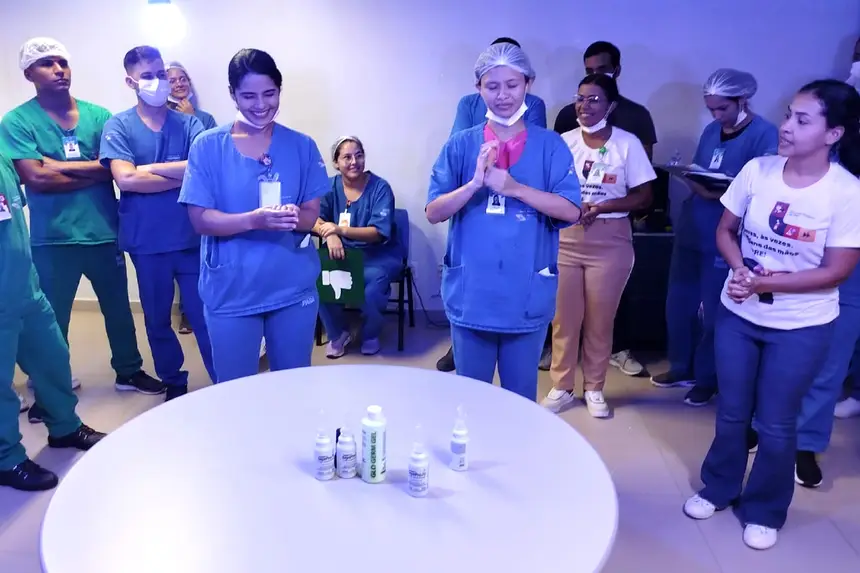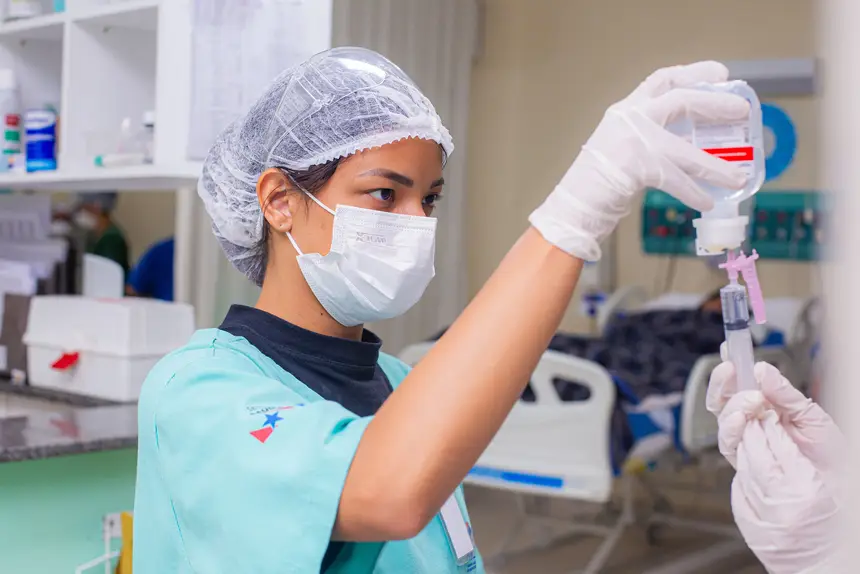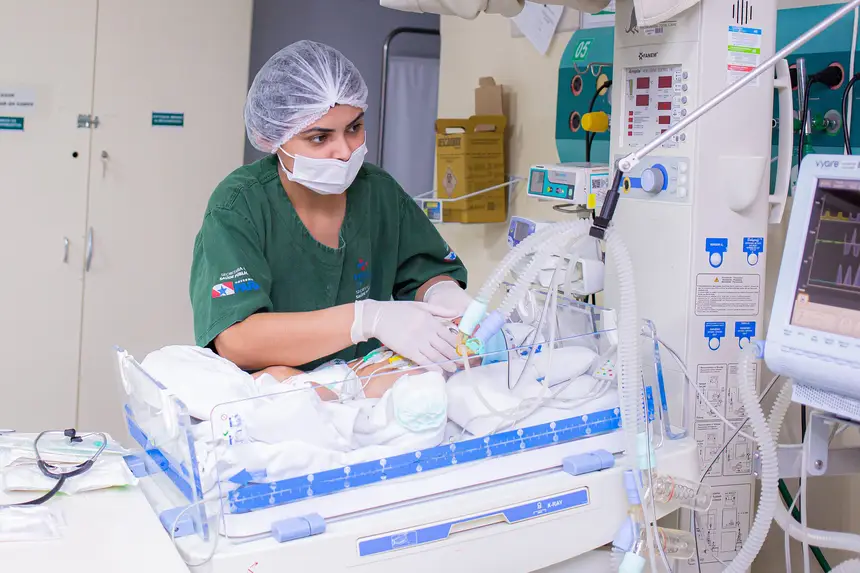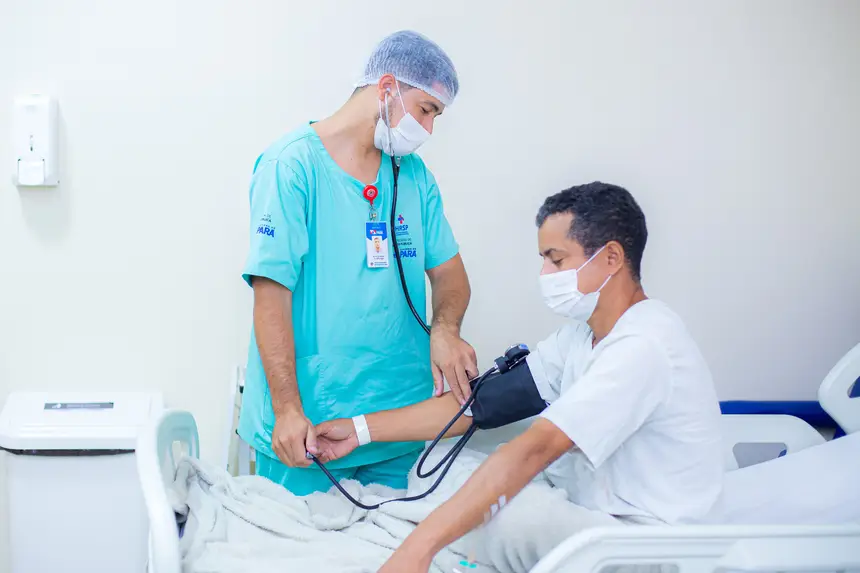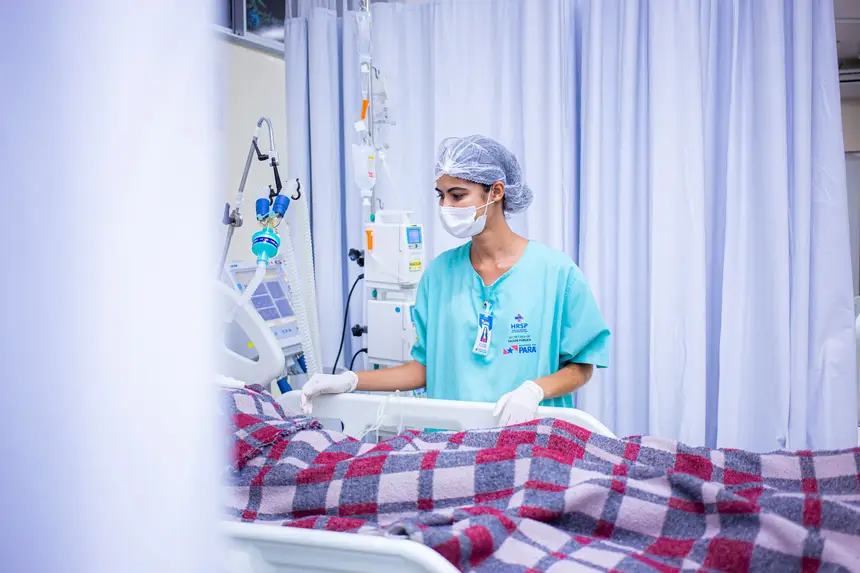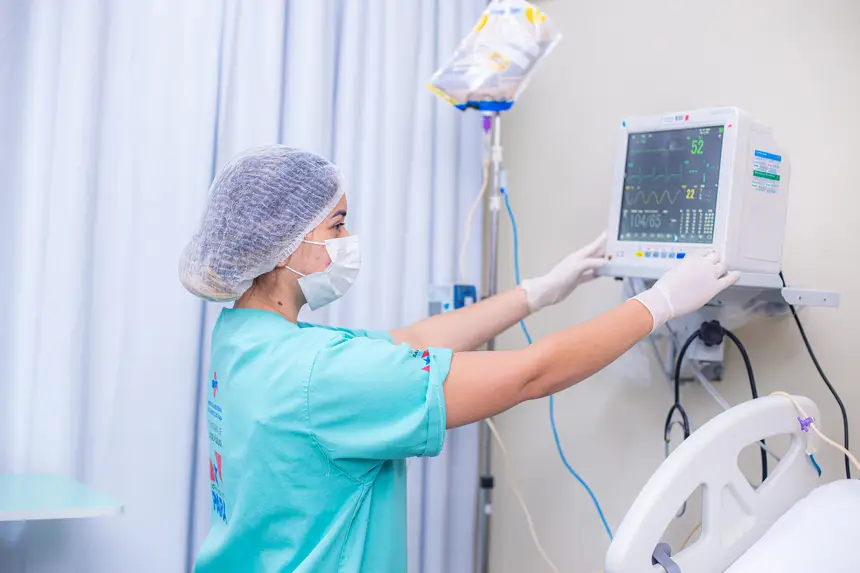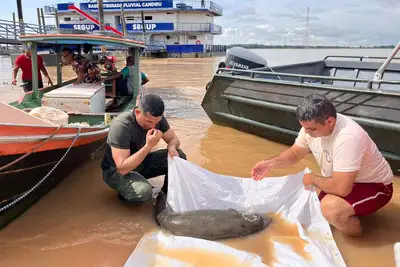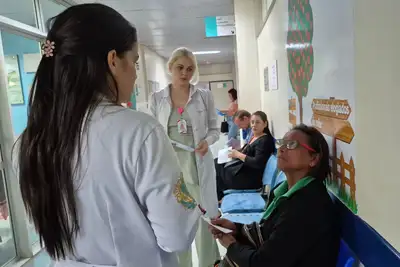Regional Hospital of Marabá strengthens patient safety measures
A reference in the Carajás region, the unit invests in continuous training, standardized protocols, and educational campaigns to ensure safe and effective care.
The Regional Hospital of Southeast Pará "Dr. Geraldo Veloso" (HRSP), in Marabá, has intensified its actions for the continuous improvement of patient safety. The unit has developed a structured set of strategies aimed at preventing and promoting a safer environment for healthcare professionals and users.
Among the initiatives that the health unit has adopted are the constant training of care teams, based on the International Patient Safety Goals established by the World Health Organization (WHO), the standardization of clinical and surgical protocols, and the implementation of checklists for critical procedures.
For the unit's nurse Luana Maria, supervisor of the Patient Quality and Safety Center (NQSP), team engagement is essential for the success of these actions. "We work to disseminate a patient-centered safety culture, involving the entire care team," she states.
According to her, the constant updating of processes, combined with monitoring indicators and conducting audits, has significantly contributed to risk reduction and improvement in care outcomes. "Our goal is to ensure humanized, effective, and, above all, safe care," concludes Luana.
Positive Experience
The rigorous attention to safety protocols at the Pará Government unit goes far beyond protocols and checklists. It translates into the real experience of users who find in the institution a welcoming, organized, and, above all, safe environment.
Hospitalized and recovering from surgery, Fernanda Souza, 35, a resident of Marabá, highlights that "the care for safety is noticeable in every detail of the service." "Before any procedure, I notice that the professionals always sanitize their hands and explain to me what they are going to do. This conveys confidence and makes me feel safer during my treatment," she reports.
Paulo James, 58, from the city of Itupiranga, in the Tucuruí Lake region, referred to the hospital for an MRI, highlighted the organization and respect with which he was welcomed. "From the reception to the examination, everyone confirmed my details and explained each step. This attention to detail made me feel more at ease and secure about the procedure," he recounts.
Educational Actions
This May, the Hospital Infection Control Service (SCIH) of the Regional Hospital of Southeast Pará is developing a series of educational actions to reinforce the importance of hand hygiene among patients, companions, and staff.
These actions are part of the institution's ongoing effort to prevent hospital infections and disseminate safe practices. Activities include discussion groups, playful activities, and practical demonstrations on hand hygiene, such as the correct use of hand sanitizer and washing hands with soap and water.
Nurse Leandra Alves, coordinator of the SCIH at the institution, emphasized that hand hygiene is one of the simplest and most effective measures to reduce the transmission of microorganisms and prevent hospital infections.
"Awareness and adherence to these practices by professionals, patients, and companions are essential to ensure a safe environment with quality care," she stated. "Every time a hand is sanitized, a barrier against infections is built. Small gestures save lives," Leandra emphasized.
The unit has a Hospital Infection Control Commission (CCIH), which works in an integrated manner with other teams to strengthen awareness and promote adherence to prevention practices. Through educational actions and monitoring, the commission reinforces the commitment to quality care.
Structure - The Regional Hospital of Southeast Pará "Dr. Geraldo Veloso" is a reference for the region, offering 100% of services through the Unified Health System (SUS). The hospital has 135 beds, with 97 designated for clinical hospitalization and 38 dedicated to Adult, Pediatric, and Neonatal Intensive Care Units (ICU).


